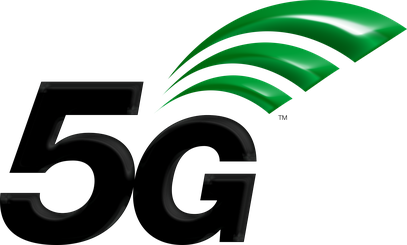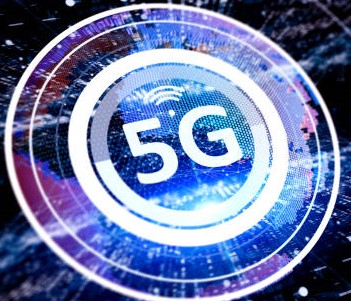Introduction
In today’s fast-paced world, we all crave faster, more reliable, and more efficient connectivity. With the advent of 5G technology, we are stepping into a new era of connectivity that promises to transform our lives in more ways than one. From ultra-fast download speeds to smoother video streaming, the benefits of 5G technology are immense. But it’s not just about faster speeds, 5G has the potential to impact society in ways that we have never seen before. In this article, we will explore the benefits of 5G technology and how it will shape our future.
What is 5G?
5G is the fifth generation of wireless communication technology that is designed to offer faster speeds, more reliable connections, and increased capacity compared to its predecessors. It is the latest evolution of the cellular network that will provide higher data transfer rates, lower latency, and improved network reliability. With 5G, users can expect download speeds up to 100 times faster than 4G, which means that streaming high-quality videos and downloading large files will be faster and smoother than ever before. Additionally, 5G technology promises to support a wider range of connected devices, enabling seamless communication between devices and the internet, and ushering in a new era of the Internet of Things (IoT). Overall, 5G technology is set to transform the way we connect, communicate, and interact with the world around us.
What are the Benefits of 5G?
There are several benefits of 5G technology that will impact various aspects of our lives, including:
- Faster download and upload speeds: One of the most notable benefits of 5G technology is its faster download and upload speeds. With 5G, users can expect download speeds up to 100 times faster than 4G, making it possible to download large files and stream high-quality videos with ease. The faster speeds will enable new applications and services that were previously impossible, such as streaming 4K and 8K videos, virtual and augmented reality experiences, and high-quality gaming on mobile devices.
- Lower latency: 5G technology promises to reduce the delay between sending and receiving data, which means that services like video conferencing and online gaming will become more seamless and interactive. Lower latency will also enable new applications and services, such as remote surgeries, autonomous driving, and real-time monitoring of critical infrastructure.
- Increased capacity: 5G will provide greater capacity to support more devices and users on the network, which means that more people can use the network at the same time without experiencing slow speeds or connectivity issues. This increased capacity will enable new applications and services that require a large number of connected devices, such as smart cities, smart homes, and industrial IoT.
- Enhanced connectivity: 5G technology will enable more reliable connectivity in areas where previous generations of cellular technology struggled, such as in remote or densely populated areas. This will improve connectivity for businesses and consumers alike, enabling seamless communication and collaboration across different locations and enabling new business models and services.
- Improved IoT capabilities: 5G will provide the necessary infrastructure for the Internet of Things (IoT) to thrive, enabling seamless communication between connected devices, and opening up new possibilities for smart homes, smart cities, and more. With 5G, IoT devices can be connected more reliably and with lower latency, enabling real-time monitoring and control of devices.
- Enhanced Augmented and Virtual Reality experience: With faster speeds and lower latency, 5G technology can support advanced augmented and virtual reality applications, providing users with more immersive experiences. This will enable new applications and services, such as virtual meetings, immersive gaming, and remote training and education.
5G technology is expected to revolutionize the way we connect and communicate, enabling new applications and services that were previously impossible, and unlocking new possibilities for innovation and growth. The benefits of 5G technology will impact various aspects of our lives, from entertainment and gaming to healthcare and transportation, and it will create new opportunities for businesses and entrepreneurs to innovate and grow.
The Impact of 5G on our Society
The impact of 5G technology on society is expected to be significant, with implications across various industries and sectors. Here are some ways in which 5G is expected to impact our society:
- Improved healthcare: 5G technology can enable remote monitoring and real-time data transfer, which can be critical for remote patient care, particularly in rural or underserved areas. With 5G, doctors and healthcare providers can remotely monitor patients, diagnose conditions, and prescribe treatment, reducing the need for in-person visits.
- Enhanced transportation: 5G technology can enable better communication and coordination between autonomous vehicles, improving safety and reducing traffic congestion. With 5G, vehicles can communicate with each other in real time, sharing data about road conditions, traffic patterns, and potential hazards.
- Smarter cities: 5G technology can enable the development of smart cities, with connected devices and sensors providing real-time data about traffic, air quality, and other city services. This can enable city planners to make more informed decisions, improving the efficiency and sustainability of city services.
- Enhanced education: 5G technology can enable remote learning, allowing students to participate in virtual classes and access educational resources from anywhere. With 5G, students can participate in interactive virtual classes, collaborate with their peers, and access educational resources in real time.
- Increased productivity: 5G technology can enable remote work and collaboration, improving productivity and flexibility for businesses and workers. With 5G, workers can access real-time data, communicate with colleagues in real time, and collaborate on projects seamlessly, regardless of their location.
- Improved entertainment: 5G technology can enable high-quality streaming of video, music, and other forms of entertainment, improving the overall entertainment experience. With 5G, users can stream high-quality video content without buffering, play online games with low latency, and access immersive virtual and augmented reality experiences.
The downside of 5G
While 5G technology promises many benefits, some potential downsides need to be considered. Here are some of the most commonly cited downsides of 5G:
- Cost: 5G technology requires a significant investment in infrastructure, including new cell towers, base stations, and other equipment. This investment can be costly, particularly in rural or underserved areas where the return on investment may be lower.
- Limited coverage: While 5G technology promises faster speeds and better connectivity, the coverage area of 5G networks is currently limited. This means that users may experience slower speeds or reduced connectivity in areas where 5G coverage is not available.
- Interference: 5G technology operates at higher frequencies than previous generations of cellular technology, which can result in interference from physical obstacles such as walls and buildings. This interference can affect signal quality and reduce the effectiveness of 5G networks in certain environments.
- Security concerns: 5G technology may pose new security risks, particularly with the increased number of connected devices and sensors. This includes potential vulnerabilities in the network infrastructure and the devices connected to it, which could be exploited by cyber attackers.
- Health concerns: While the scientific consensus is that 5G technology is safe for human use, some individuals and groups have expressed concerns about the potential health effects of 5G radiation. However, the vast majority of scientific research suggests that 5G technology does not pose a significant health risk.
- Environmental impact: The deployment of 5G technology requires a significant investment in infrastructure, which can harm the environment. This includes the construction of new cell towers and base stations, which can disrupt ecosystems and wildlife habitats.
Thoughts
5G technology is expected to be a transformative force, enabling new applications and services that were previously impossible, and unlocking new possibilities for innovation and growth. With faster speeds, lower latency, and increased connectivity, 5G promises to revolutionize the way we live, work, and interact with the world around us.
However, as with any new technology, there are also potential downsides that need to be considered. From a cost and limited coverage to security concerns and potential health effects, it is important to address these issues to ensure that the benefits of 5G technology are accessible to all members of society.
Overall, 5G technology has the potential to revolutionize our society in countless ways, from improving healthcare and transportation to enhancing education and entertainment. As we continue to deploy and develop 5G networks, it will be important to balance the potential benefits with the potential risks and ensure that we build a 5G infrastructure that is safe, secure, and accessible to all.



